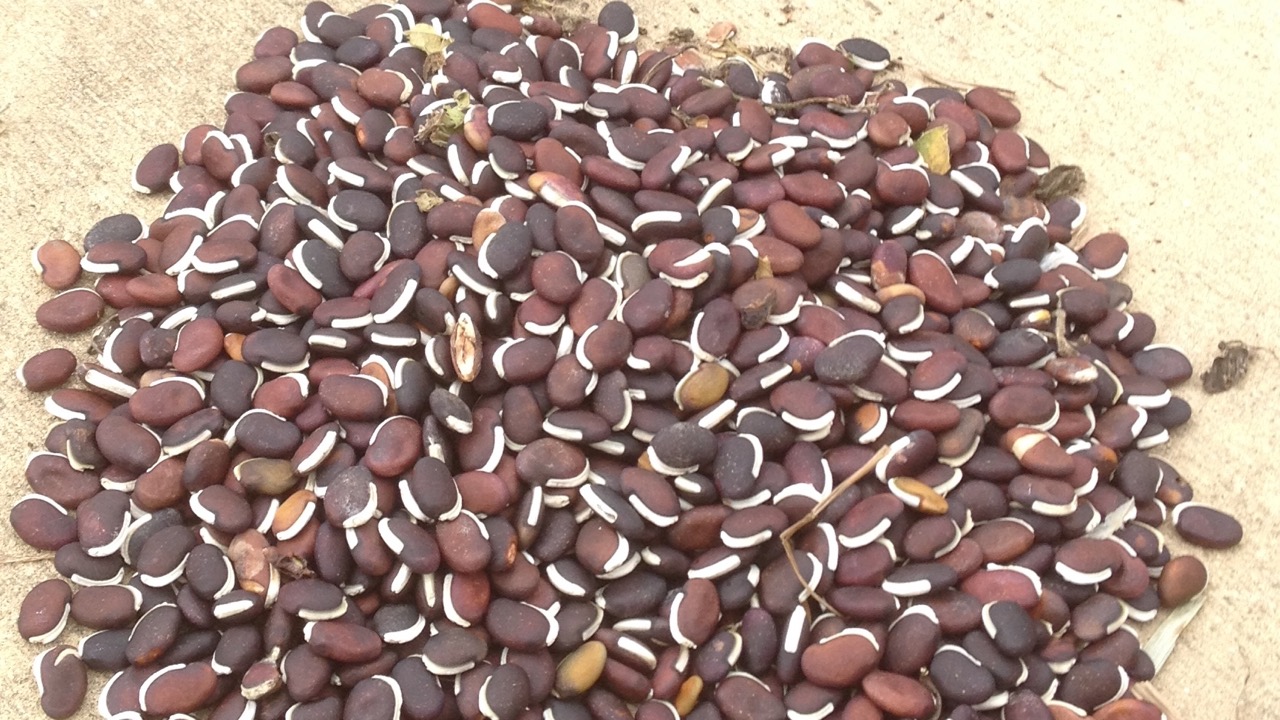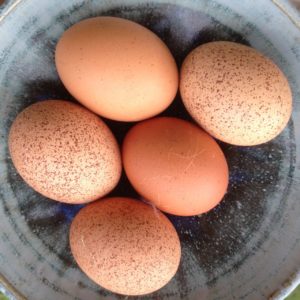
Using lablab beans for chicken feed is one of those happy coincidences of production and need that perfectly fits a subtropical smallholding. In this post I will outline how lablab beans neatly fit the season and can nudge chickens back into egg production. This year I tried the strategy out properly, and the hens have started laying a month earlier.
Every year in Winter our chickens go off lay. This is standard, and part of the yearly cycle for them. It’s also not so bad for us to cut egg consumption for a month or so, but last year they didn’t kick back in until September, and we were getting tired of buying the odd carton.
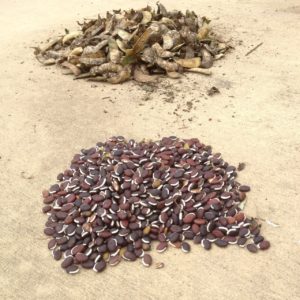
There are two explanations for the hens going ‘off lay’. The main one is that hens sense daylength, and if they get less than 12 hours (some say 14 hours) light, they stop laying, which is countered in large operations by lighting the sheds. This should mean that home flocks just need to wait till the days are long enough, and nothing can be done to hurry things along, bar put in lighting.
A second explanation is that the hens moult in early Winter and then divert their protein stocks to making new feathers at the expense of egg production. This should mean that feeding the hens up with high protein feed should get them back ‘into lay’ faster.
This year I decided to get serious about the protein supplement part of the equation. As I wrote in an earlier post, we have lablab beans here, which grow and produce very well, and are not particularly tasty, so a good candidate for self-sufficient poultry feed.
Lablab beans; growing and using.
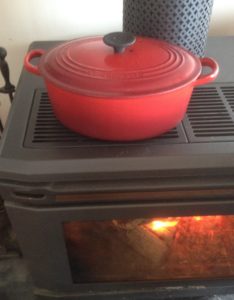
The happy coincidence of timing is that the lablab beans are ready to pick in July, just when the chickens need a protein boost to get those feathers back. It’s also when we have the wood stove burning most nights to warm the house, and the stove is perfect for boiling the beans up.
Boiling lablab beans is important for two reasons, firstly they are quite large for chicken feed and might not be digested as well when raw and hard, but secondly there is some concern that they contain cyanogenic glycosides, which are poisonous and need to be boiled out. I doubt that mine do contain glycosides, as I started cautiously with small feeds but the chickens showed no adverse reaction, and now I will happily throw them a kilo or two of cooked beans, which they eagerly consume. If you were being very cautious (maybe trying your own strain of beans) you would boil in large volumes of water, but I’m now happy to cook them so that they absorb most of the cooking water.
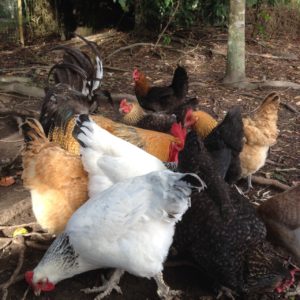
The beans grow through the warm months, after a Spring sowing, and a dozen or so plants will cover a large area. They will trail over grass or climb anything they can get their stems around, so they are good if you have a neglected sunny area. They like Summer rain and here are free of major pests. Lablab beans flower from Summer on, and steadily accumulate clusters of pods. Fortunately the pods will stay intact for a long time, meaning you can pick them at your convenience without losing seed through pod shattering (the pods can get quite black and mildewed, but the beans inside remain fine).
Picking is simple. I put a long-handled calico bag around my neck and pull off the clusters of pods into it. The time consuming part is shelling the pods, which seems to take an age, typically a job for in front of TV at night (I was never going to be a knitter). Then I just tip a kilo or so of beans into a big cast iron casserole, fill with hot water, and leave on the wood fire until morning.
This year was my first proper test of feeding the hens up. They loved the cooked lablab beans and generally wandered around in a contented way after their morning feed. I also did a Winter stocktake of old pulses in the pantry, and added them to the ration too. Hey presto, the hens have started laying a month earlier than last year, and are looking in fine form with red combs and wattles, and good tails. The tails seem to be the last of the feathers to grow back, and next year I’ll be watching for how the re-appearance of good tails corresponds to return to lay.
I would recommend giving lablab beans a try if your conditions suit. They really are zero maintenance, and for a modest amount of preparation provide a good high protein supplement right when your hens need it.

